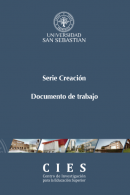
Hantavirus Pulmonary Syndrome, Southern Chile, 1995–2012
| PROCEDENCIA(S): | Ciencia y Medicina, USS de La Patagonia. |
|---|---|
| CATEGORÍA(S): | Enfermedades Infecciosas, Epidemiología, Medicina de Emergencia y de Cuidados Críticos, Patología, Sistema Respiratorio. |
| AUTOR(ES): | Raúl Riquelme / María Luisa Rioseco / Lorena Bastidas / Daniela Trincado / Mauricio Riquelme / Hugo Loyola / Francisca Valdivieso. |
| TIPO DE MATERIAL: | Artículos, Investigación. |
| ARCHIVO: |
 Reconocimiento CC BY. Esta obra está bajo una Licencia Creative Commons Reconocimiento CC BY 4.0 Internacional.
Reconocimiento CC BY. Esta obra está bajo una Licencia Creative Commons Reconocimiento CC BY 4.0 Internacional.
Hantavirus is endemic to the Region de Los Lagos in southern Chile; its incidence is 8.5 times higher in the communes of the Andean area than in the rest of the region. We analyzed the epidemiologic aspects of the 103 cases diagnosed by serology and the clinical aspects of 80 hospitalized patients during 1995-2012. Cases in this region clearly predominated during winter, whereas in the rest of the country, they occur mostly during summer. Mild, moderate, and severe disease was observed, and the case-fatality rate was 32%. Shock caused death in 75% of those cases; high respiratory frequency and elevated creatinine plasma level were independent factors associated with death. Early clinical suspicion, especially in rural areas, should prompt urgent transfer to a hospital with an intensive care unit and might help decrease the high casefatality rate.



